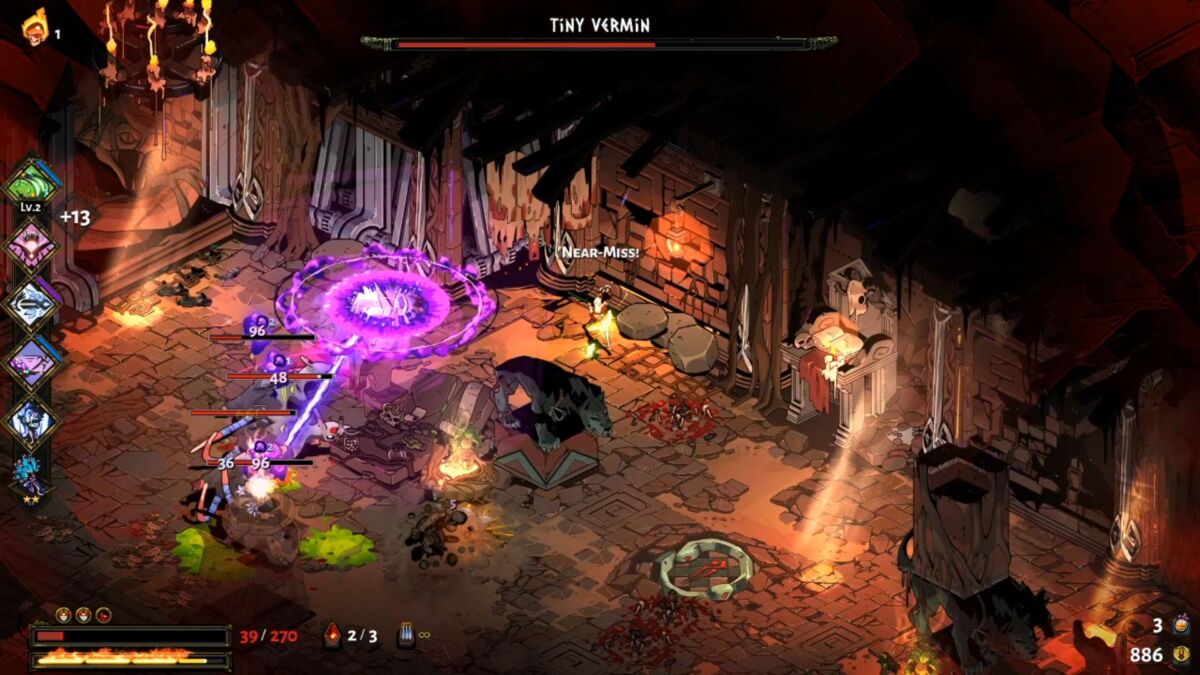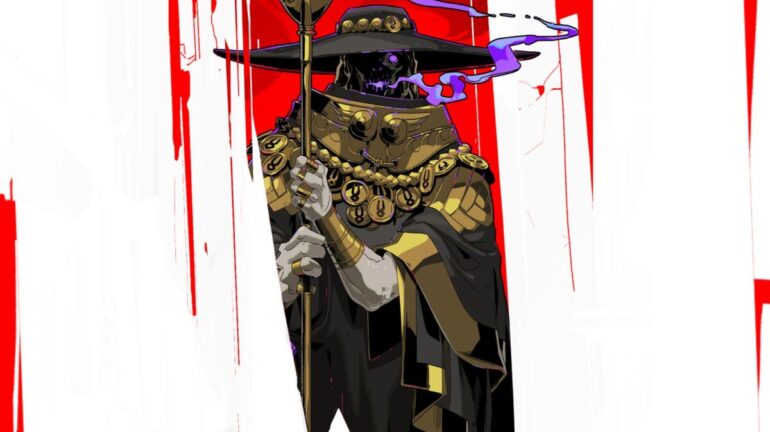It’s probably not surprising for you to see Hades featured in a “Best Games of 2020” article series. What is surprising, however, is the fact that I’m the one nominating this game. Roguelikes have never been my forte, as the idea of losing everything you’ve worked hard to achieve each run and going again never felt worth it. Games like Enter The Gungeon, Binding of Isaac and others have just felt impenetrable to me. Dead Cells cracked that roguelike barrier to an extent, but Hades barrelled right on through.
After picking the game up as part of the Christmas Switch eShop sales, it’s not hard to see why Hades has been regarded by many as one of, if not the best game of 2020. While still unmistakably a roguelike, Hades does an excellent job of not only incorporating the constant failure that the genre relies on into its story, but also making each run feel like you’re making actual progression.
As Zagreus, the son of Hades himself, you’re sick of living in the Underworld under the thumb of your father, and so you’ve decided to stage a break-out. Unfortunately, slaughtering your way through hordes of demons is a lot easier said than done, causing Zag to return to The House of Hades after each failure, tail tucked between his legs. However, his determination is unwavering, and with each run taking him further and further towards the surface, it’s only a matter of time before his goal is realised.
Gameplay-wise, Hades is fantastic. Some roguelikes suffer from making the main character feel weak before they’ve been upgraded, but Zag’s core moveset and abilities give him plenty of speed and strength from the get-go, making him incredibly fun to play.

Hades immediately works great as an isometric slasher, meaning the roguelike elements and upgraded abilities just add to the fun you’re already having. Still, it helps that Hades offers you some kind of upgrade at the start of every run, which makes it feel like the game wants you to succeed. It’s a nice touch.
Players make their way through a series of randomly generated chambers, each filled with monsters, and you can only proceed after having slaughtered everyone else standing in your way. Crucially, instead of trying to find rewards and treasures inside random dungeons, each chamber has their own reward, whether that’s gold or Boons from the Gods that can help your current run, or Gemstones and Darkness that can be used back in the House of Hades for more permanent upgrades. Often, you can choose which chamber to enter, meaning you have more control over the rewards you receive.
Of course, once death does rear its ugly head, you’re sent back to the House to upgrade your abilities and speak to the various denizens of the Underworld. In a way, dying is a reward in and of itself. Not only does it give you a chance to improve the Underworld’s chambers for better runs, or upgrade yourself in your personal chambers for better abilities, you can also learn more about the world from other Gods, offer gifts in exchange for personal keepsakes that improve your abilities even further, unlock new weapons or just give the lovable Cerberus a quick pet.
While I’m yet to conquer the Underworld and reach the surface for the first time, Hades might be the first Roguelike where I feel like I’m compelled to reach that conclusion. It’s an absolutely brilliant game that’s demanding yet supportive in equal measure, and feels right at home on the Nintendo Switch. Anyway, it’s lunchtime, so let’s try and escape again.
READ NEXT: The Best Indie Games of All Time
Some of the coverage you find on Cultured Vultures contains affiliate links, which provide us with small commissions based on purchases made from visiting our site.

